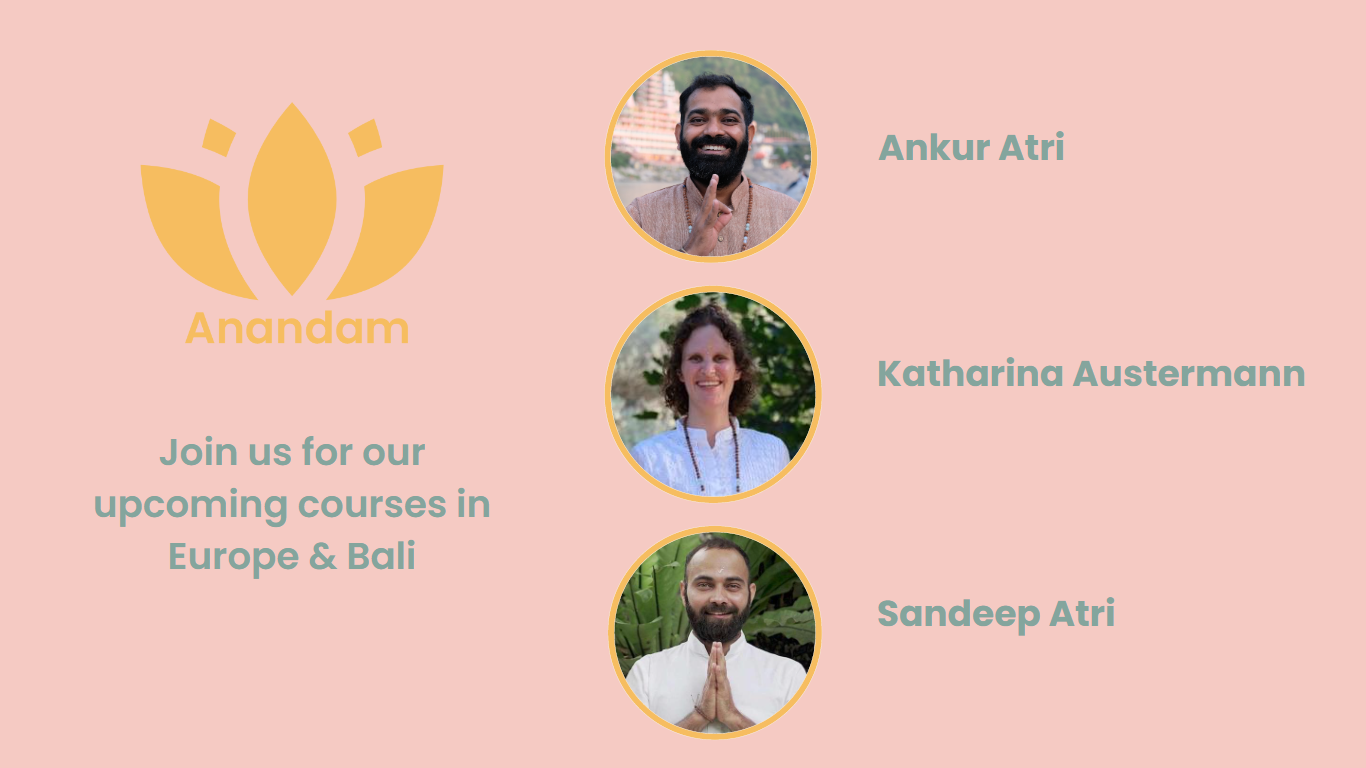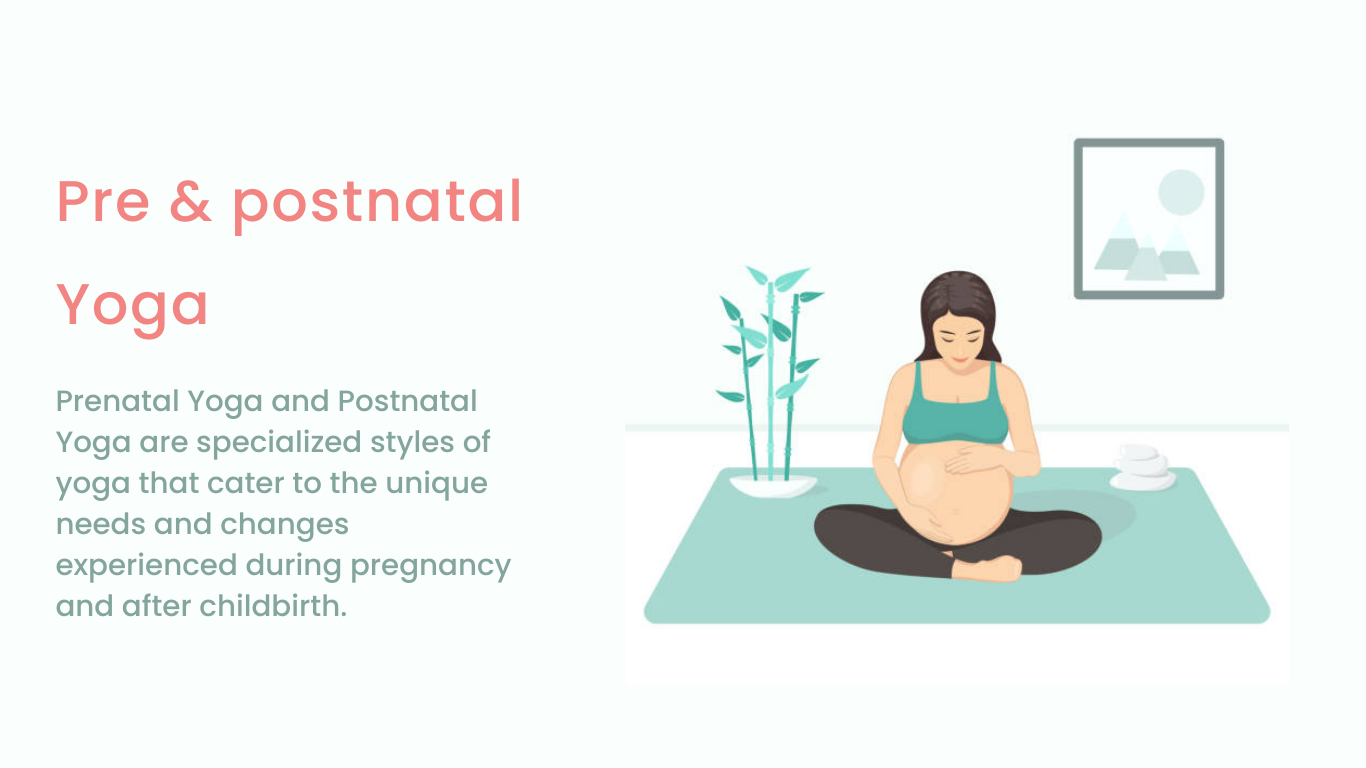Pregnancy, Birth and Beyond: Exploring The Benefits of Pre and Postnatal Yoga
Prenatal Yoga and Postnatal Yoga are specialized styles of yoga that cater to the unique needs and changes experienced during pregnancy and after childbirth. They provide physical and emotional support to expectant and new mothers, helping them maintain a healthy body, mind, and spirit during this transformative time.
Prenatal Yoga
Prenatal Yoga focuses on the well-being of both the mother and the growing baby. It offers gentle and modified yoga poses that are safe and suitable for pregnancy. The practice emphasizes breath awareness, relaxation techniques, and gentle stretching to alleviate common discomforts of pregnancy, promote circulation, and prepare the body for labor and childbirth.
Prenatal Yoga classes typically involve poses that help to strengthen the pelvic floor, improve balance, and relieve tension in areas such as the lower back and hips. Props such as bolsters, blankets, and blocks are used to support the body and ensure comfort during the practice. The practice also includes breathing exercises (pranayama) that promote relaxation, reduce anxiety, and connect with the breath as a tool for labor and birth.
Benefits of Prenatal Yoga
Practicing yoga during pregnancy can offer numerous benefits for expectant mothers. Here are some key advantages:
Regular yoga practice during pregnancy can help improve overall physical health. It promotes strength, flexibility, and balance, which can be especially beneficial as the body undergoes changes to accommodate the growing baby. Yoga also helps alleviate common discomforts such as back pain, swollen feet, and muscle tension.
2. Reduced Stress and Anxiety:
Pregnancy can bring about various emotional and psychological changes. Yoga provides a nurturing space for mothers to relax, unwind, and release stress. The combination of deep breathing exercises, gentle movements, and mindfulness techniques can help calm the mind, reduce anxiety, and promote emotional well-being.
Many pregnant women struggle with sleep disturbances due to hormonal fluctuations, physical discomfort, and racing thoughts. Yoga can promote better sleep quality by helping to relax the body, reduce tension, and induce a sense of tranquility, leading to improved rest and rejuvenation.
4. Preparation for Labor and Birth:
Prenatal yoga incorporates specific poses, breathing exercises, and pelvic floor relaxation and strengthening techniques that can be valuable in preparing the body for labor and birth. Yoga helps women develop greater body awareness, enhance pelvic stability, and learn effective relaxation and pain management techniques, all of which can contribute to a more positive birthing experience.
Yoga offers an opportunity for expectant mothers to deepen their bond with their growing baby. Through gentle movements, mindful breathing, and focused attention, women can cultivate a sense of connection and mindfulness towards their baby. This can foster a nurturing environment and enhance the overall experience of pregnancy.
Joining prenatal yoga classes provides an opportunity to connect with other expectant mothers and build a supportive community. Sharing experiences, concerns, and joys with like-minded individuals can be invaluable during this transformative phase of life.
Did you know that a recent meta-analysis involving 29 studies and 2,217 pregnant women indicated that expectant mothers who practiced yoga experienced significant reductions in both anxiety and depression levels, as well as reported shorter labor durations and exhibited a higher likelihood of delivering vaginally.
Postnatal Yoga
Postnatal Yoga, on the other hand, is tailored to the recovery and adjustment period following childbirth. It focuses on rebuilding strength, restoring energy, and promoting self-care for new mothers. Postnatal Yoga classes often incorporate gentle movements, stretching, and strengthening exercises that target the areas affected by pregnancy and childbirth, such as the pelvic floor, abdomen, and back.
Postnatal Yoga classes also provide a supportive and nurturing environment for new mothers to bond with their babies. Some classes incorporate baby-friendly poses and movements that allow mothers to practice yoga while engaging with their infants. These classes can offer opportunities for gentle play, soothing touch, and connection between mother and baby.
Benefits of Postnatal Yoga
Postnatal yoga offers many benefits for new mothers as they recover from childbirth and adjust to the demands of caring for a newborn.
Postnatal yoga helps new mothers regain strength, flexibility, and tone in their bodies after pregnancy and childbirth. It focuses on rebuilding core strength, toning the pelvic floor, and realigning the spine. Gentle movements and stretches can also alleviate postpartum discomfort, such as back pain and shoulder tension.
2. Stress Relief and Relaxation:
Caring for a newborn can be physically and emotionally demanding, often leading to increased stress levels. Postnatal yoga provides a dedicated time and space for mothers to relax, unwind, and release tension. Deep breathing exercises and mindfulness techniques promote a sense of calm and inner peace.
After giving birth, hormones in a woman's body undergo significant changes. Postnatal yoga helps regulate hormonal balance by reducing cortisol (stress hormone) levels and increasing the release of endorphins (feel-good hormones). This can contribute to improved mood and overall well-being.
4. Postpartum Depression and Anxiety Management:
It has been found to be an effective complementary therapy for managing postpartum depression and anxiety. The combination of physical movement, breathwork, and relaxation techniques can help alleviate symptoms, promote self-care, and provide emotional support during this vulnerable period.
5. Reconnecting with the Body:
Pregnancy and childbirth can cause a disconnect between a woman and her body. Postnatal yoga offers an opportunity to reconnect with the physical self, promoting body awareness, self-acceptance, and a positive body image. It encourages mothers to appreciate their bodies for the miraculous journey they have undergone.
Participating in postnatal yoga classes allows new mothers to connect with other women who are going through similar experiences. This sense of community provides a supportive environment for sharing concerns, joys, and insights, fostering a sense of belonging.
Where do I find the best Prenatal and Postnatal Yoga course in Bali
Both Prenatal and Postnatal Yoga classes place importance on creating a safe and supportive community of expectant or new mothers. They provide a space for sharing experiences, concerns, and joys related to pregnancy, childbirth, and parenting. The classes are led by instructors who are trained to offer guidance, modifications, and specific adjustments to accommodate the unique needs of pregnant or postpartum bodies.
Practicing Prenatal and Postnatal Yoga can bring numerous benefits. It can help relieve pregnancy discomforts, enhance physical strength and flexibility, improve posture and body awareness, promote relaxation and stress reduction, and foster a positive mindset during the transitional phases of pregnancy and early motherhood.
It's important for pregnant individuals and new mothers to consult with their healthcare provider before starting prenatal and postnatal yoga, to ensure it aligns with their individual circumstances and medical history.

Are you interested in learning more about pre- and postnatal Yoga?
Welcome to our yoga teacher training and certification program, where you can unlock the knowledge and skills to guide women on their yoga journey during the transformative stages of pregnancy and postpartum. With our Yoga Alliance Certification, you'll gain the recognition and credibility needed to excel in this specialized field.
We are planning a Pre and postnatal Yoga teacher training in Germany in summer 2024.
To get more information about this pre and postnatal Yoga program, contact us and you will be one of the first ones to get the updates.
Best yoga school in Bali training program is designed to provide you with a deep understanding of the physical, emotional, and energetic aspects of prenatal and postnatal yoga. Led by experienced instructors, you'll delve into topics such as safe and effective sequencing, modifications for different trimesters, breathwork, pelvic floor health, and nurturing self-care practices for new mothers.
Through a blend of theoretical knowledge, practical sessions, and hands-on teaching experience, you'll develop the expertise to create empowering and supportive yoga classes tailored to the unique needs of pregnant and postpartum women.
Our 200 hours Yoga teacher training in Bali is the foundational course for everyone to become a Yoga teacher and is carefully curated to cover anatomy and physiology, alignment principles, basic Yoga philosophy, pranayama, meditation and much more.
Upon successful completion of the 200 h Yoga teacher training in Bali, you'll receive a Yoga Alliance Certification, a globally recognized credential that showcases your dedication and proficiency in prenatal and postnatal yoga instruction. This certification will open doors to new opportunities, allowing you to lead classes, workshops, and private sessions with confidence and competence.
At Bali yoga school, we prioritize a nurturing and inclusive learning environment, fostering a sense of community and support among trainees. You'll have the opportunity to connect with like-minded individuals, exchange knowledge, and build lifelong friendships with fellow yoga teachers.
To inquire about our Certified Prenatal & Postnatal Yoga Teacher Training program and take the next step in your yoga journey, visit our website or email us on info@anandamyogaschool.com today. We're here to answer your questions, provide further details, and support you on this rewarding path of guiding women through the transformative stages of pregnancy and early motherhood.

